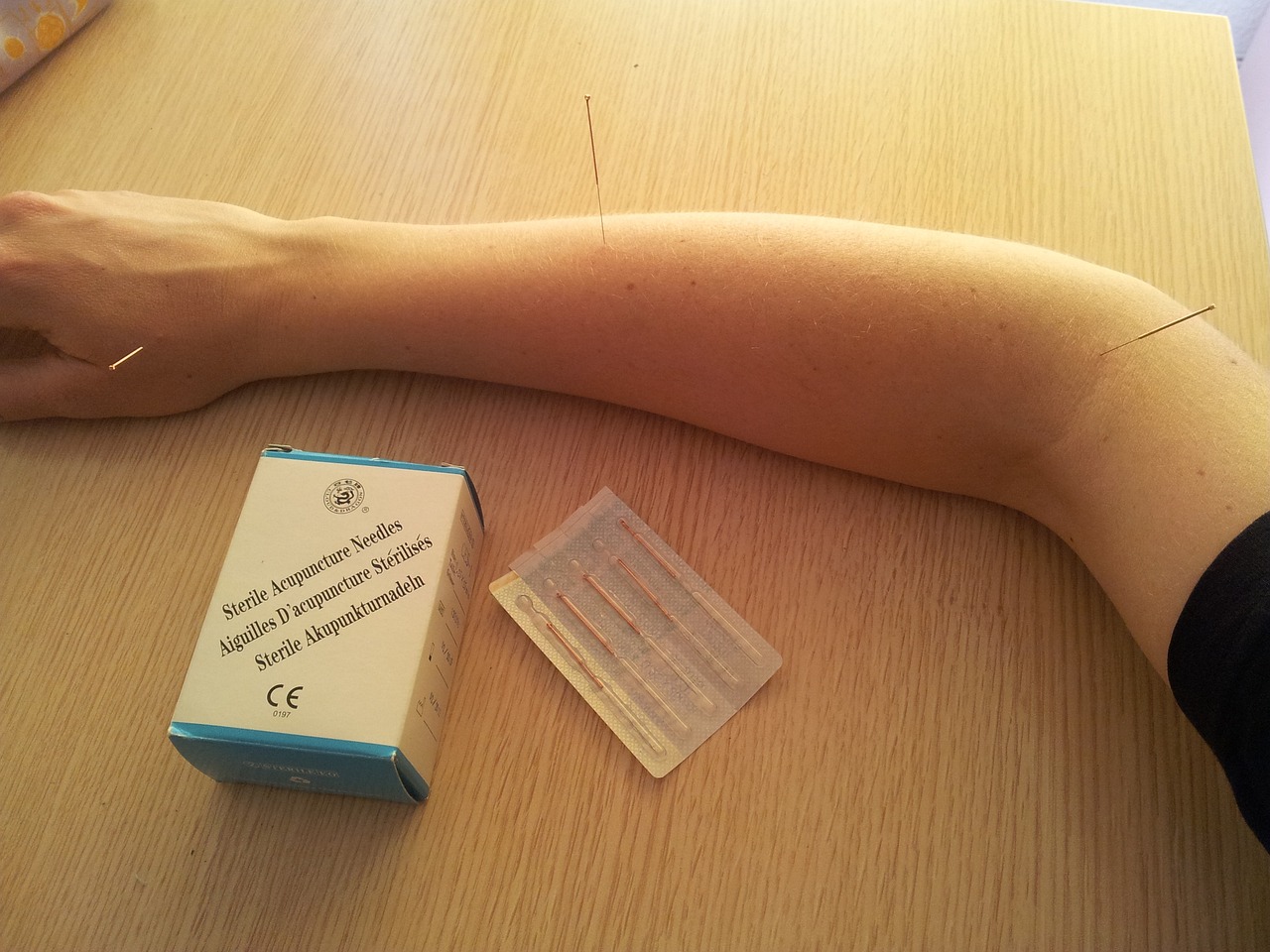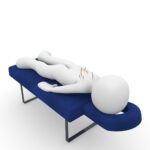
The Astonishing Power of Acupuncture: A Natural Remedy
Discover the incredible benefits of acupuncture, a natural remedy that has been used for centuries to treat various health conditions and promote overall well-being. Acupuncture is a traditional Chinese medicine practice that involves the insertion of thin needles into specific points on the body. It is based on the belief that the body has a vital energy called Qi, which flows through pathways known as meridians. When these pathways are blocked or imbalanced, it can lead to various health problems.
Acupuncture works by stimulating these specific points on the body, helping to restore the balance of Qi and promoting the body’s natural healing response. It is a holistic approach to health that treats not only the symptoms but also addresses the underlying imbalances in the body. This ancient practice has stood the test of time and continues to be used today due to its remarkable effectiveness and minimal side effects.
Pain Relief
Acupuncture is a powerful natural remedy that has been used for centuries to alleviate pain and promote the body’s natural healing response. By targeting specific points on the body, acupuncture stimulates the release of endorphins, which are the body’s natural painkillers. These endorphins help to reduce pain and promote a sense of well-being.
During an acupuncture session, thin needles are inserted into specific points on the body, known as acupuncture points. These points are believed to be connected to channels or meridians through which the body’s energy flows. By stimulating these points, acupuncture helps to restore the balance of energy in the body, relieving pain and promoting healing.
- By targeting specific points on the body, acupuncture can effectively alleviate pain.
- Acupuncture stimulates the release of endorphins, which act as natural painkillers.
- The body’s natural healing response is promoted through acupuncture.
Acupuncture is particularly effective in treating chronic pain conditions such as back pain, neck pain, arthritis, and migraines. It can also be used to relieve acute pain from injuries or surgeries. Many people find acupuncture to be a safe and effective alternative to pharmaceutical pain medications, which often come with unwanted side effects.
Overall, acupuncture offers a holistic approach to pain relief by addressing the underlying imbalances in the body and promoting the body’s natural healing abilities. Whether you’re dealing with chronic pain or seeking relief from an acute injury, acupuncture can be a valuable tool in your journey towards better health and well-being.
Stress Reduction
Stress Reduction
Stress and anxiety have become common issues in today’s fast-paced world, affecting millions of people worldwide. Fortunately, acupuncture offers a natural and effective solution for reducing stress and promoting overall mental well-being.
Acupuncture works by regulating the body’s stress hormones, such as cortisol, which are responsible for the fight-or-flight response. By targeting specific acupuncture points, the body’s stress response can be modulated, leading to a reduction in stress levels and a sense of calmness.
In addition to hormone regulation, acupuncture also promotes relaxation. During an acupuncture session, thin needles are inserted into specific points on the body, stimulating the release of endorphins, which are the body’s natural painkillers and mood enhancers. These endorphins induce a state of deep relaxation, helping to alleviate stress and anxiety.
Furthermore, acupuncture can improve overall mental well-being by addressing imbalances in the body. According to Traditional Chinese Medicine (TCM) principles, emotional imbalances are often linked to disruptions in the flow of Qi, the body’s vital energy. By restoring the balance of Qi through acupuncture, mental clarity and emotional stability can be achieved.
Overall, acupuncture offers a holistic approach to stress reduction, addressing both the physical and emotional aspects of well-being. By regulating stress hormones, promoting relaxation, and restoring balance in the body, acupuncture can be a valuable tool in managing stress and improving mental well-being.
Improved Sleep
Are you tired of tossing and turning all night, struggling to get a good night’s sleep? Acupuncture may hold the key to improving your sleep quality and finally achieving the restful slumber you deserve. This ancient practice has been used for centuries to address underlying imbalances in the body that can contribute to sleep disturbances.
One of the ways acupuncture enhances sleep quality is by promoting relaxation. During an acupuncture session, thin needles are strategically inserted into specific points on the body. This stimulates the release of endorphins, the body’s natural feel-good chemicals, which can help you unwind and prepare for a peaceful night’s sleep.
Additionally, acupuncture can target imbalances in the body that may be causing insomnia symptoms. By addressing these underlying issues, such as hormonal imbalances or disruptions in the body’s energy flow, acupuncture can help regulate your sleep patterns and promote a more restful sleep.
Unlike pharmaceutical sleep aids, acupuncture offers a natural and holistic approach to improving sleep. It doesn’t just mask the symptoms; it addresses the root cause of sleep disturbances, helping you achieve long-term results.
If you’re tired of counting sheep and longing for a good night’s sleep, consider giving acupuncture a try. Consult with a qualified acupuncturist who can develop a personalized treatment plan to address your specific sleep concerns. You may be surprised by the astonishing power of acupuncture in enhancing your sleep quality and overall well-being.
Enhanced Energy
Enhanced Energy
Acupuncture is a powerful natural remedy that can significantly enhance energy levels in the body. By targeting specific points on the body, acupuncture stimulates the flow of energy, known as Qi, and improves circulation. This increased circulation helps deliver oxygen and nutrients to the body’s tissues, promoting overall vitality and energy.
In addition to improving circulation, acupuncture also works to balance the body’s energy flow. According to traditional Chinese medicine, a disruption in the flow of Qi can lead to fatigue and low energy levels. Acupuncture helps restore balance by removing blockages and promoting the smooth flow of energy throughout the body.
Furthermore, acupuncture can address underlying health issues that may contribute to fatigue. By targeting specific points on the body, acupuncture can help regulate hormones, improve digestion, and address conditions such as anemia or chronic pain that may be draining energy. By addressing these underlying issues, acupuncture can effectively boost energy levels and promote overall well-being.
Mental Clarity
Mental clarity is essential for our overall well-being and productivity. It allows us to focus, make decisions, and perform at our best. However, in today’s fast-paced world, stress and anxiety can cloud our minds and hinder our mental clarity. This is where acupuncture comes in as a powerful natural remedy.
Acupuncture has been found to be effective in reducing stress levels by stimulating the release of endorphins, our body’s natural feel-good chemicals. By targeting specific points on the body, acupuncture helps to regulate the body’s stress hormones, promoting a sense of relaxation and calmness.
Another way acupuncture enhances mental clarity is by promoting better sleep. Lack of sleep can greatly impact our cognitive function, making it difficult to concentrate and think clearly. Acupuncture addresses underlying imbalances in the body that may contribute to insomnia and other sleep disorders. By promoting relaxation and reducing insomnia symptoms, acupuncture can greatly improve sleep quality, allowing us to wake up refreshed and mentally sharp.
In addition to reducing stress and improving sleep, acupuncture also enhances overall brain function. It does this by improving blood circulation to the brain, delivering essential nutrients and oxygen that are crucial for optimal brain performance. Acupuncture also helps to balance the body’s energy flow, ensuring that all organs, including the brain, are functioning at their best.
With reduced stress, better sleep, and enhanced brain function, acupuncture can significantly improve mental clarity and focus. It provides a natural and holistic approach to enhancing cognitive function, without the need for pharmaceutical interventions that may have unwanted side effects.
In conclusion, acupuncture offers a powerful solution for improving mental clarity and focus. By reducing stress, promoting better sleep, and enhancing overall brain function, acupuncture helps us achieve a state of mental well-being and optimal cognitive performance.
Boosted Immunity
Boosted Immunity
Acupuncture is a powerful natural remedy that can strengthen the immune system and enhance overall health and well-being. By regulating immune responses, reducing inflammation, and promoting balance in the body, acupuncture can help boost the body’s defense mechanisms and improve its ability to fight off infections and diseases.
One of the ways acupuncture strengthens the immune system is by regulating immune responses. Acupuncture stimulates specific points on the body, known as acupuncture points, which are connected to different organs and systems. By targeting these points, acupuncture can help regulate the immune system and improve its ability to respond effectively to pathogens.
In addition to regulating immune responses, acupuncture also helps reduce inflammation in the body. Inflammation is a natural response of the immune system to protect the body from harmful stimuli. However, chronic inflammation can weaken the immune system and lead to various health issues. Acupuncture can help reduce inflammation by promoting the release of anti-inflammatory substances and improving blood circulation.
Furthermore, acupuncture promotes overall health and well-being, which in turn strengthens the immune system. By addressing imbalances in the body and promoting balance, acupuncture helps optimize the body’s functions and improve its ability to maintain good health. This holistic approach to health not only enhances the immune system but also supports the body’s overall well-being.
In conclusion, acupuncture is a remarkable natural remedy that can boost the immune system by regulating immune responses, reducing inflammation, and promoting overall health and well-being. By incorporating acupuncture into your wellness routine, you can strengthen your immune system and enjoy improved health and vitality.
Holistic Approach to Health
When it comes to addressing health issues, acupuncture takes a holistic approach that goes beyond just treating the symptoms. This ancient practice recognizes that the body is interconnected and that imbalances in one area can affect the overall well-being of an individual.
With acupuncture, the focus is on identifying and addressing the root cause of health problems rather than simply alleviating the symptoms. By stimulating specific points on the body, acupuncture aims to restore balance and promote the body’s natural healing ability.
Through the insertion of thin needles into these points, acupuncture can regulate the flow of energy, known as Qi, throughout the body. By doing so, it helps to remove blockages and restore the proper functioning of organs and systems.
Acupuncture also takes into consideration the emotional and mental aspects of health. It recognizes that stress, anxiety, and other emotional factors can have a significant impact on overall well-being. By promoting relaxation and reducing stress hormones, acupuncture helps to restore emotional balance and improve mental health.
Furthermore, acupuncture supports the body’s overall well-being by strengthening the immune system and reducing inflammation. By regulating immune responses, it helps to prevent illnesses and promotes a state of optimal health.
Overall, acupuncture offers a comprehensive and holistic approach to health. It goes beyond just treating symptoms and aims to address the underlying imbalances that contribute to health issues. By promoting balance in the body and supporting overall well-being, acupuncture can be a valuable addition to any healthcare regimen.
Complementary Therapy
Acupuncture is not only a standalone treatment option but can also be used as a complementary therapy alongside conventional medical treatments. This approach can enhance the effectiveness of traditional treatments and support the body’s natural healing process.
When used alongside conventional medical treatments, acupuncture can provide additional benefits and improve overall outcomes. It can help reduce side effects associated with certain medications or procedures, making the overall treatment experience more comfortable for the patient.
Acupuncture works by stimulating specific points on the body, promoting the flow of energy and restoring balance. By incorporating acupuncture into a treatment plan, patients can experience a holistic approach to their health, addressing both the physical and energetic aspects of their condition.
Furthermore, acupuncture can help improve the body’s response to conventional treatments. It can enhance the effectiveness of medications, accelerate healing after surgeries or procedures, and support the body’s immune system during times of illness or recovery.
By combining the benefits of acupuncture with conventional medical treatments, patients can experience a more comprehensive approach to their health and well-being. This complementary therapy can provide a synergistic effect, maximizing the potential for positive outcomes and promoting overall wellness.
It is important to note that acupuncture should always be performed by a qualified and experienced practitioner. They can work in collaboration with other healthcare professionals to create an integrated treatment plan that optimizes the benefits of both conventional medicine and acupuncture.
In summary, acupuncture can be used as a complementary therapy alongside conventional medical treatments to enhance their effectiveness and support the body’s healing process. By incorporating acupuncture into a treatment plan, patients can experience a more holistic approach to their health and well-being, improving overall outcomes and promoting optimal wellness.
Minimal Side Effects
When it comes to treating health conditions, many people are often concerned about the potential side effects of pharmaceutical treatments. However, acupuncture offers a safe and natural alternative with minimal side effects. Unlike medications that can cause a range of adverse reactions, acupuncture works with the body’s natural healing mechanisms to promote overall well-being.
One of the main advantages of acupuncture is its minimal side effects compared to pharmaceutical treatments. While medications can often lead to unwanted reactions such as nausea, drowsiness, or allergic reactions, acupuncture rarely causes any adverse effects. This is because acupuncture involves the insertion of thin needles into specific points on the body, stimulating the body’s own healing response without introducing foreign substances.
Moreover, acupuncture is a holistic therapy that aims to address the root cause of health issues rather than just treating the symptoms. By promoting balance in the body and supporting overall well-being, acupuncture can help alleviate various health conditions without the risk of side effects associated with many pharmaceutical treatments.
It’s important to note that individual experiences with acupuncture may vary, and it’s always recommended to consult with a qualified acupuncturist to discuss any potential risks or concerns. However, in general, acupuncture is considered a safe and natural alternative for those seeking relief from various health conditions without the worry of significant side effects.
Pain Relief
Acupuncture is a remarkable natural remedy that offers astonishing benefits for pain relief. By targeting specific points on the body, acupuncture stimulates the release of endorphins, which are the body’s natural painkillers. This ancient practice promotes the body’s natural healing response, providing effective relief from various types of pain.
Imagine a world where chronic pain is no longer a burden. Acupuncture can help alleviate pain caused by conditions such as arthritis, migraines, back pain, and even menstrual cramps. By addressing the root cause of the pain, acupuncture offers long-lasting relief without relying on pharmaceutical treatments.
Unlike medications that may have harmful side effects, acupuncture is a safe and natural alternative. It doesn’t just mask the pain; it works to heal the body from within. Whether you’re dealing with acute or chronic pain, acupuncture can be a game-changer in your journey towards a pain-free life.
Frequently Asked Questions
- 1. How does acupuncture work?
Acupuncture works by stimulating specific points on the body, known as acupuncture points, with thin needles. This stimulation helps to balance the flow of energy, or Qi, in the body, promoting healing and restoring overall well-being.
- 2. Is acupuncture painful?
The sensation experienced during acupuncture varies from person to person. While some may feel a slight prick or tingling sensation, many people find acupuncture to be a relatively painless and relaxing experience.
- 3. What conditions can acupuncture treat?
Acupuncture can be beneficial for a wide range of health conditions, including chronic pain, migraines, anxiety, depression, insomnia, digestive disorders, and fertility issues. It can also be used to support overall wellness and preventive care.
- 4. How many acupuncture sessions do I need?
The number of acupuncture sessions required depends on the individual and the specific condition being treated. Some people may experience significant improvements after just a few sessions, while others may require ongoing treatment for more chronic or complex conditions.
- 5. Is acupuncture safe?
When performed by a trained and licensed acupuncturist, acupuncture is generally considered safe. The use of sterile needles and adherence to proper hygiene practices minimize the risk of infection or other complications.
- 6. Can acupuncture be used alongside other medical treatments?
Yes, acupuncture can be used as a complementary therapy alongside conventional medical treatments. It can enhance the effectiveness of other treatments and support the body’s natural healing process.
- 7. Are there any side effects of acupuncture?
Acupuncture typically has minimal side effects. Some people may experience mild bruising or soreness at the needle insertion sites, but these effects are temporary and generally well-tolerated.
- 8. How long do the effects of acupuncture last?
The duration of the effects of acupuncture varies depending on the individual and the condition being treated. Some people may experience immediate relief, while others may notice gradual improvements over time. Regular acupuncture sessions can help maintain and prolong the benefits.
- 9. How should I prepare for an acupuncture session?
Before your acupuncture session, it is recommended to eat a light meal and avoid caffeine or alcohol. Wear loose and comfortable clothing to allow easy access to the acupuncture points. It’s also helpful to communicate any concerns or questions with your acupuncturist.
- 10. How do I find a qualified acupuncturist?
When seeking an acupuncturist, it’s important to choose a licensed and experienced practitioner. You can ask for recommendations from your healthcare provider, friends, or family. Additionally, professional acupuncture organizations can provide referrals to qualified practitioners in your area.







Leave a Reply